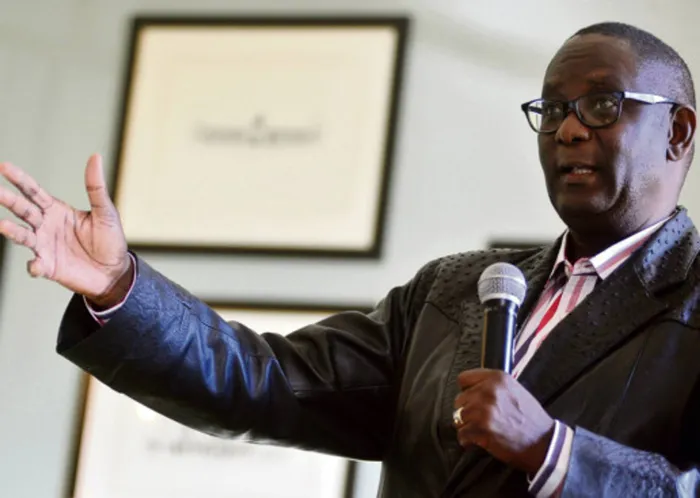Marches are only the start, says Vavi

Cape Town - 150911 - Zwelinzima Vavi talks at the Press Club. Photographer: Armand Hough Cape Town - 150911 - Zwelinzima Vavi talks at the Press Club. Photographer: Armand Hough
Cape Town - Marches against corruption on September 30 should be the start of a new chapter that signals the awakening of citizens, says expelled Cosatu general secretary Zwelinzima Vavi.
“It must be seen as the moment when the game changes, from a citizenship that have their heads in deep sand, denying what is happening above, to a citizenship that is actively engaging and demanding accountability from their government,” Vavi said on Friday.
The country was on a slide towards becoming a failed state, with the economy in trouble, unemployment – especially youth unemployment – at crisis levels, deepening inequality and poverty, coupled with corruption and the hollowing out of institutions designed to combat it.
There had to be a “cultural revolution”, starting with ordinary citizens, that took stock of growing lawlessness and sought ways to turn it around.
“Almost every segment of this society must do a proper introspection about what they can do to change and save us from becoming yet another failed state,” Vavi said.
“This includes the workers, professionals, academics who have agreed to be silenced, the businesses who have agreed to be silent and to play along in corruption.
“Should we not have a conversation in this country about how we can change that DNA, from an unnecessary defiance mode to one that says only hard work, only a total commitment to the cause of making South Africa a better country for our children, can be revolutionary. Anything else can’t be,” Vavi said.
All political parties and civil society formations should co-operate to this end.
Speaking at a Cape Town Press Club breakfast, Vavi said the marches at the end of the month to Parliament in Cape Town and the Union Buildings in Pretoria, had to be followed by further campaigns to sustain the momentum.
The steering committee of Unite Against Corruption, organisers of the marches which have the backing of civil society organisations, academics and artists, among others, was already working on a programme to follow the march, Vavi said.
He suggested a looming water crisis could be one issue to be taken up, focusing on clean water for all and clean toilets in every school.
“Already, five municipalities are experiencing water shortages and sometimes communities have to spend a week or so without any water, forced to go to the shops to buy water just to drink.
Washing themselves and their clothes becomes a luxury.”
A second possibility was a campaign to defend Public Protector Thuli Madonsela and to ensure the credibility of the person appointed in her place when her term ends in October next year.
“Active citizens must play a role in influencing the decisions of the powers that be in terms of who must be the next public protector,” Vavi said. This should apply to all senior positions in important institutions such as the police and prosecuting authority.
He admitted, however, that agreeing on demands was complicated in an organisation that included such diverse interests.
“You can imagine, on this side are the trade unions who believe the origin of corruption is in the capitalist system and its culture of survival of the fittest, which has now spread into trade unions and civil society, even government. On the other are faith-based organisations who oppose corruption from the faith-based point of view, you’ve got civil society – it’s a very difficult mission… 300 civil society organisations are participating in the formulation of demands.”
Political Bureau